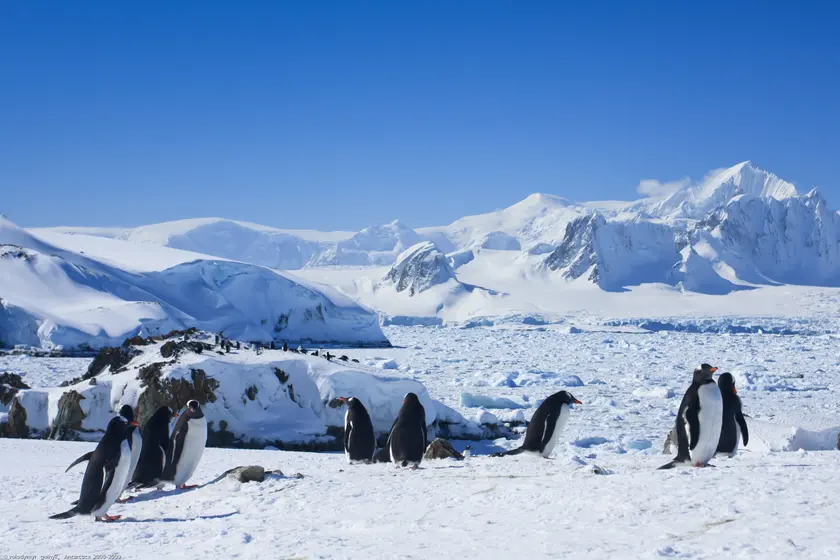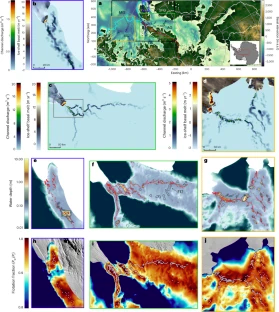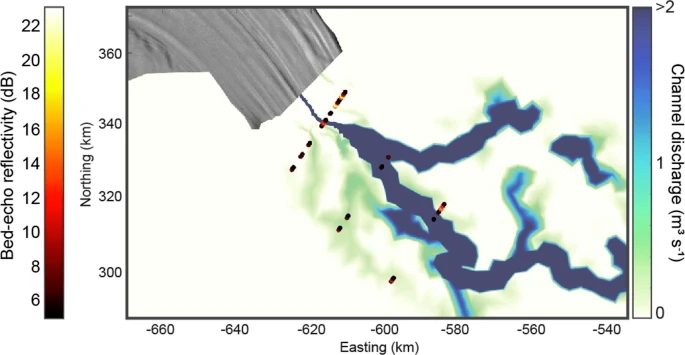
Scientists have discovered evidence of a 460-km-long river snaking its way through the base of the Antarctic ice sheet
Among the many mechanisms shaping the Antarctic ice sheet are the processes playing out in its lower layers, and a newly discovered sub-glacial river suggests it may drain away faster than we thought. Scientists say the 460-km-long (285-mile) river shows the base of the ice sheet features more flowing water than we realized, which may accelerate its melting as the planet continues to warm.
The depths of a massive ice sheet are inherently difficult places to study and explore, but over the past decade scientists have begun to paint a picture of the low-lying channels of water that connect subglacial lakes in Antarctica. Earlier this year, researchers were able to directly survey an Antarctic under-ice river for the first time, drilling into the ice sheet to get a glimpse of a narrow stream far below.
“When we first discovered lakes beneath the Antarctic ice a couple of decades ago, we thought they were isolated from each other,” said co-author of the new study, Professor Martin Siegert from Imperial College London. “Now we are starting to understand there are whole systems down there, interconnected by vast river networks, just as they might be if there weren’t thousands of meters of ice on top of them.”
Siegert and his co-authors made the new discovery through modeling of the ice sheet hydrology and airborne radar surveys that reveal its underlying layers. The observations revealed a river snaking its way through the ice sheet and exiting into the sea at specific locations, beneath the floating ice shelf that juts out from the land.
In doing so, the river transports huge amounts of freshwater through the base of the ice sheet at high pressure, which the scientists believe may be lubricating the sheet and boosting the flow of ice into the sea.
“From satellite measurements we know which regions of Antarctica are losing ice, and how much, but we don’t necessarily know why,” said study author Dr Christine Dow from the University of Waterloo. “This discovery could be a missing link in our models. We could be hugely underestimating how quickly the system will melt by not accounting for the influence of these river systems. Only by knowing why ice is being lost can we make models and predictions of how the ice will react in the future under further global heating, and how much this could raise global sea levels.”
The scientists also point to the potential for feedback loops that could speed up the loss of ice even further. This could mean that as water accumulates and the ice travels faster over dry land, it may increase friction that in turn boosts basal melting. And the cycle would continue.
“Previous studies have looked at the interaction between the edges of ice sheets and ocean water to determine what melting looks like,” said co-author Dr Neil Ross, from the University of Newcastle. “However, the discovery of a river that reaches hundreds of kilometers inland driving some of these processes shows that we cannot understand the ice melt fully without considering the whole system: ice sheet, ocean, and freshwater.”
The research was published in the journal Nature Geoscience.
https://newatlas.com/environment/river-base-antarctic-ice-sheet-melting/

